Understanding fractions Geometry Worksheets for Ages 7-9
35 filtered results
-
From - To
Unlock the mysteries of fractions with our "Understanding Fractions Geometry Worksheets for Ages 7-9" at Kids Academy! Perfect for young learners, these worksheets blend fun and education to help kids grasp fundamental geometry concepts through fractions. With engaging activities such as fraction coloring, shape partitioning, and equal parts identification, kids develop a solid foundation in math while enjoying interactive learning. Designed by experts, these printables stimulate critical thinking and problem-solving skills. Ideal for both classrooms and homeschooling, our vibrant worksheets captivate students and transform fractions into an exciting adventure in geometry! Empower your child’s math journey today!
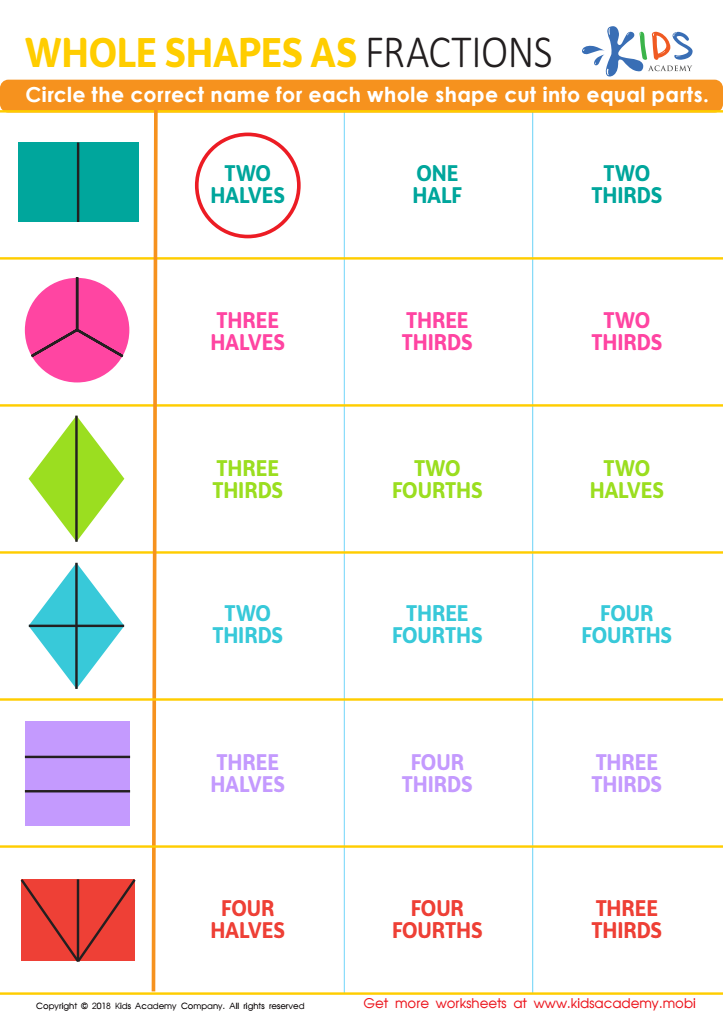

Whole Shapes as Fractions Worksheet
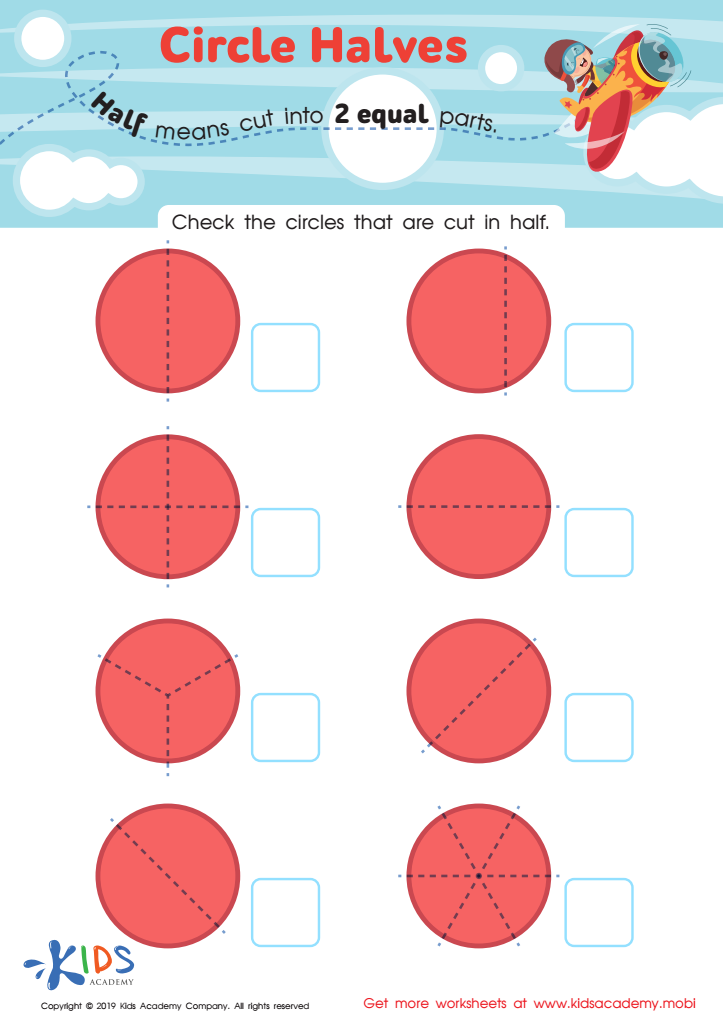

Circle Halves Worksheet
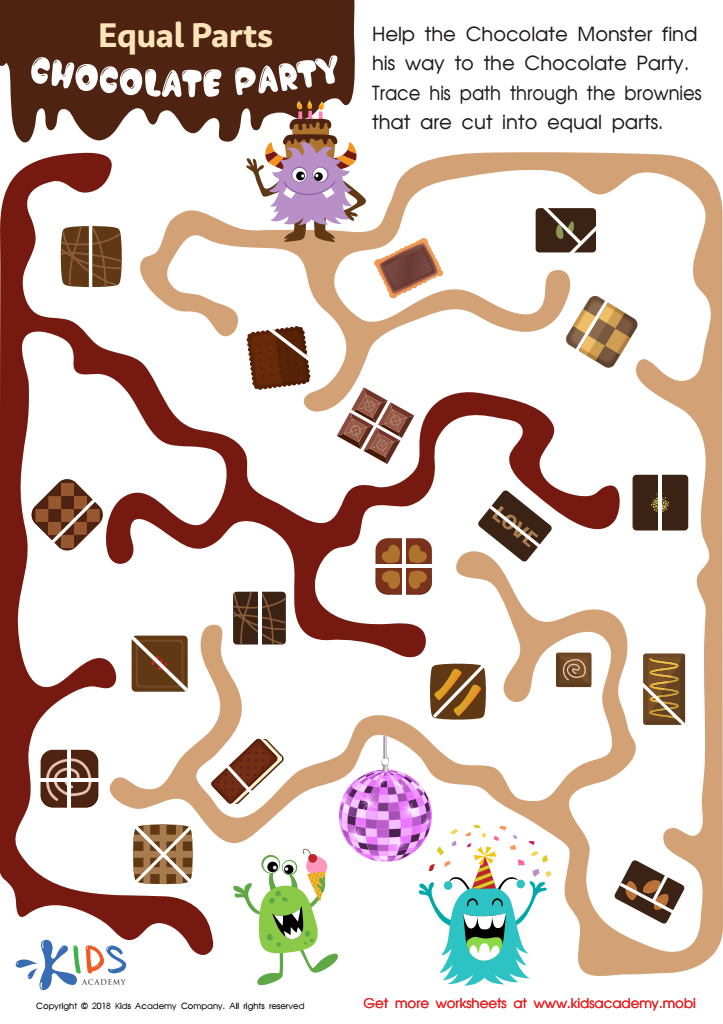

Equal Parts: Chocolate Party Worksheet
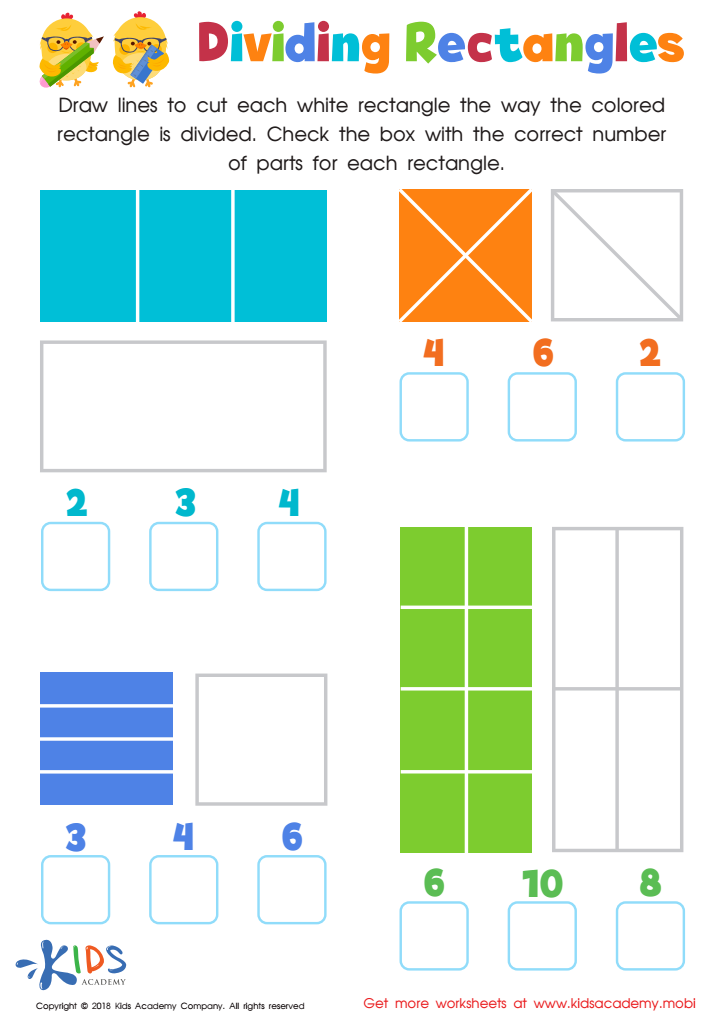

Dividing Rectangles Worksheet
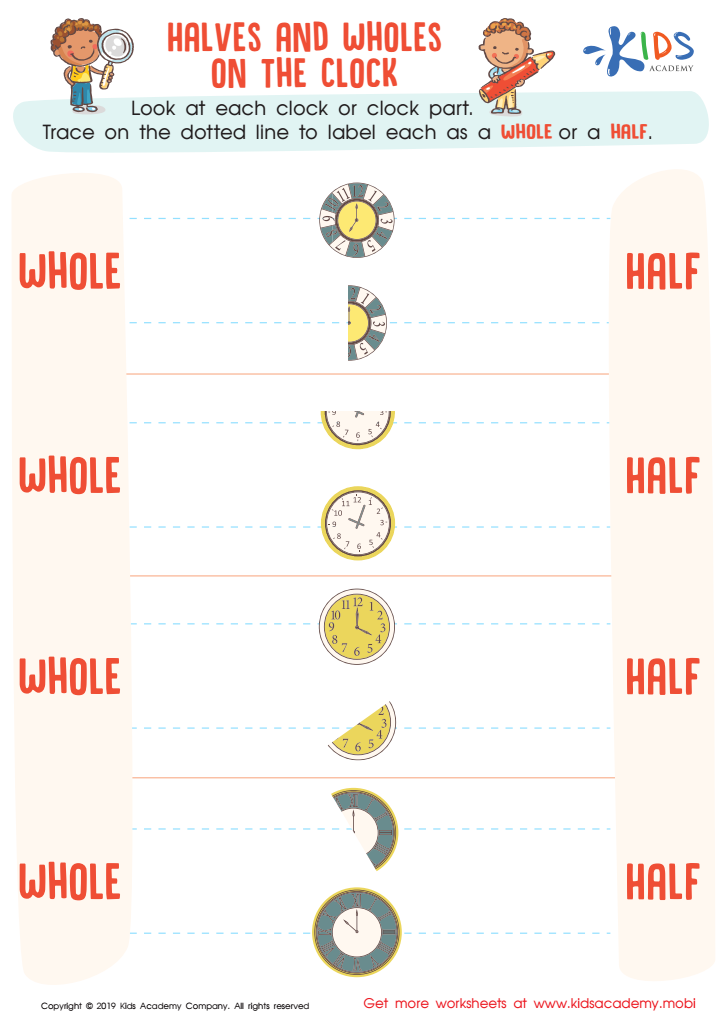

Halves and Wholes on the Clock Worksheet
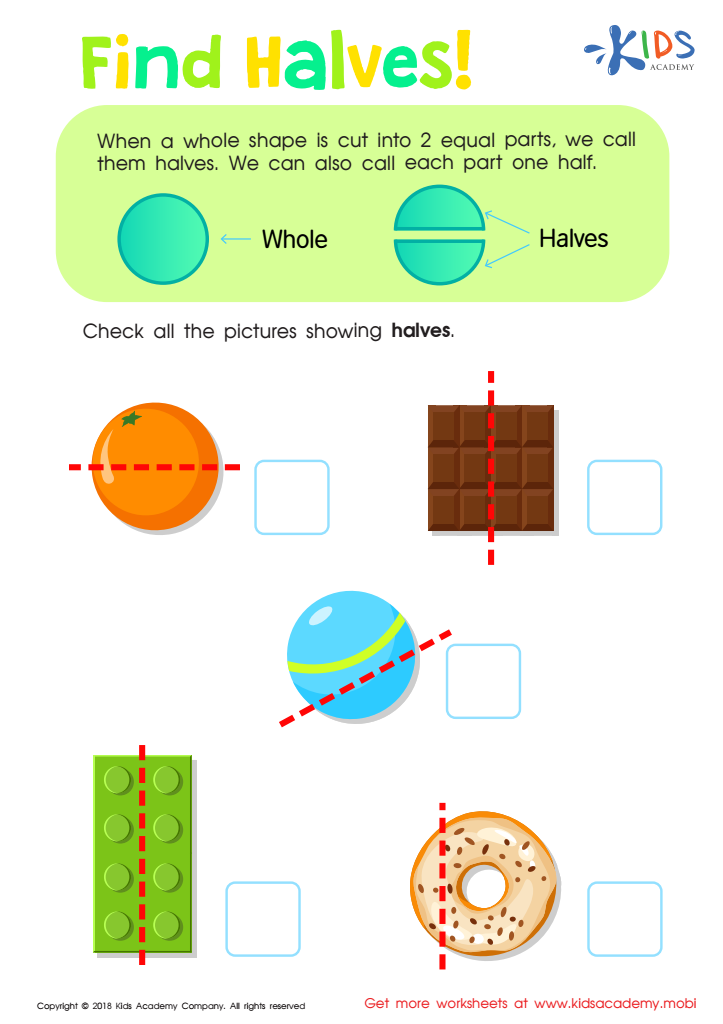

Find Halves Worksheet
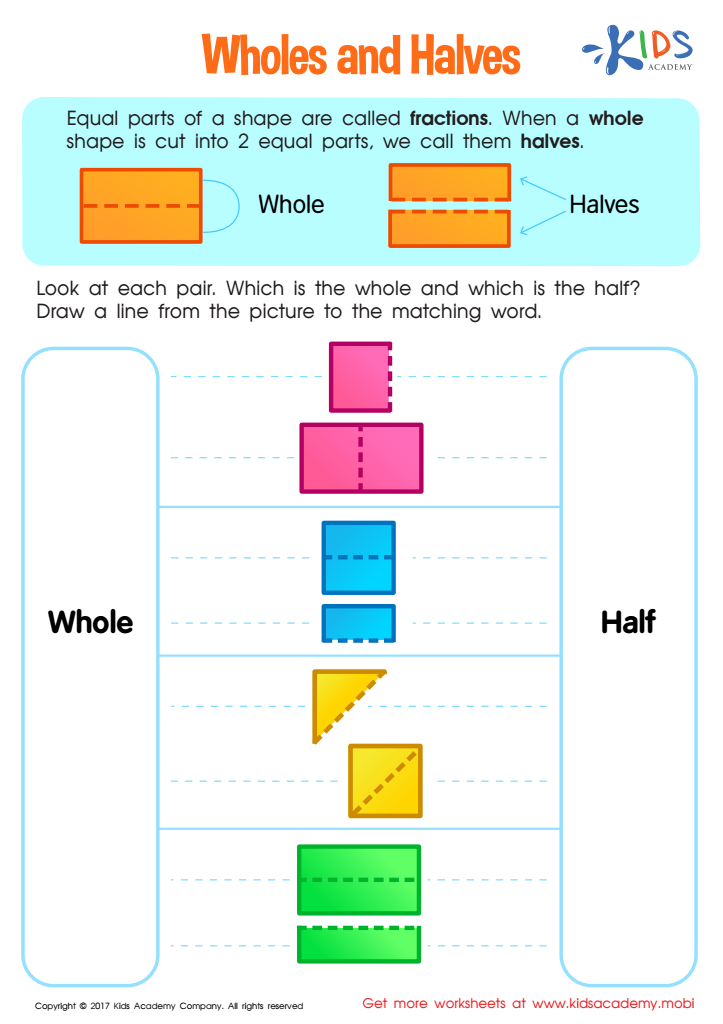

Wholes and Halves Worksheet
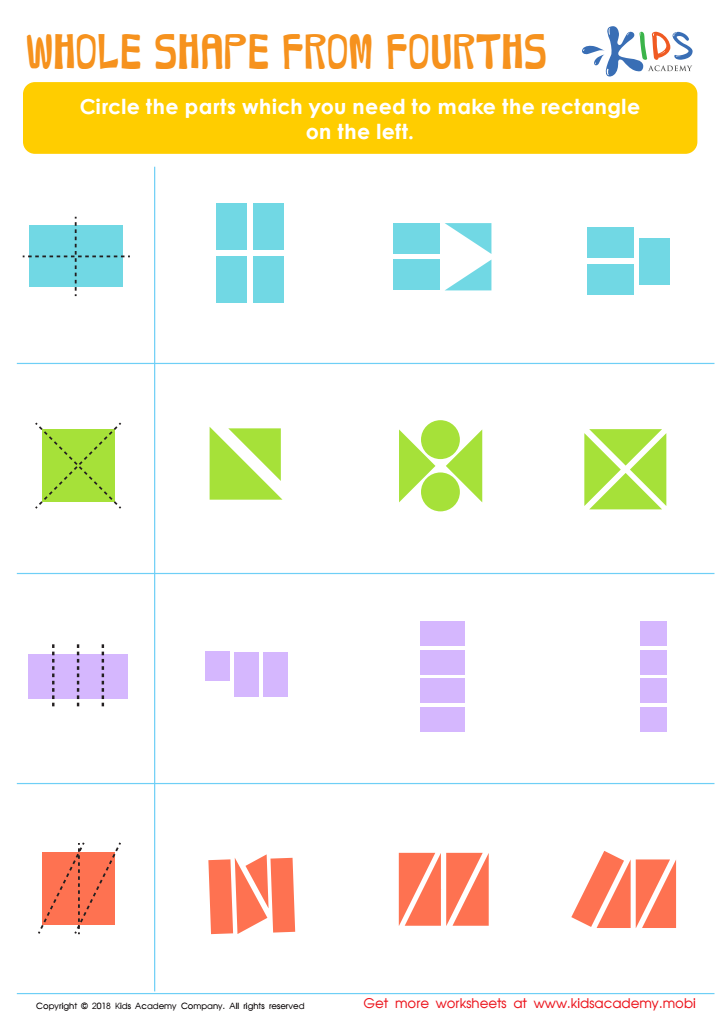

Whole Shape from Fourths Worksheet
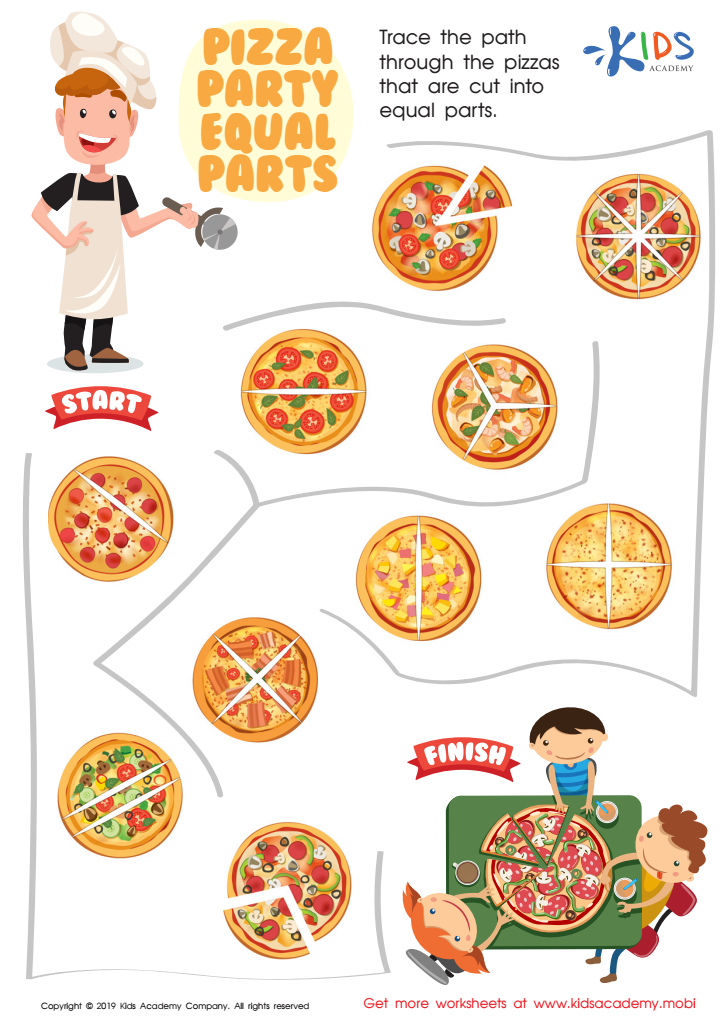

Pizza Party Equal Parts Worksheet
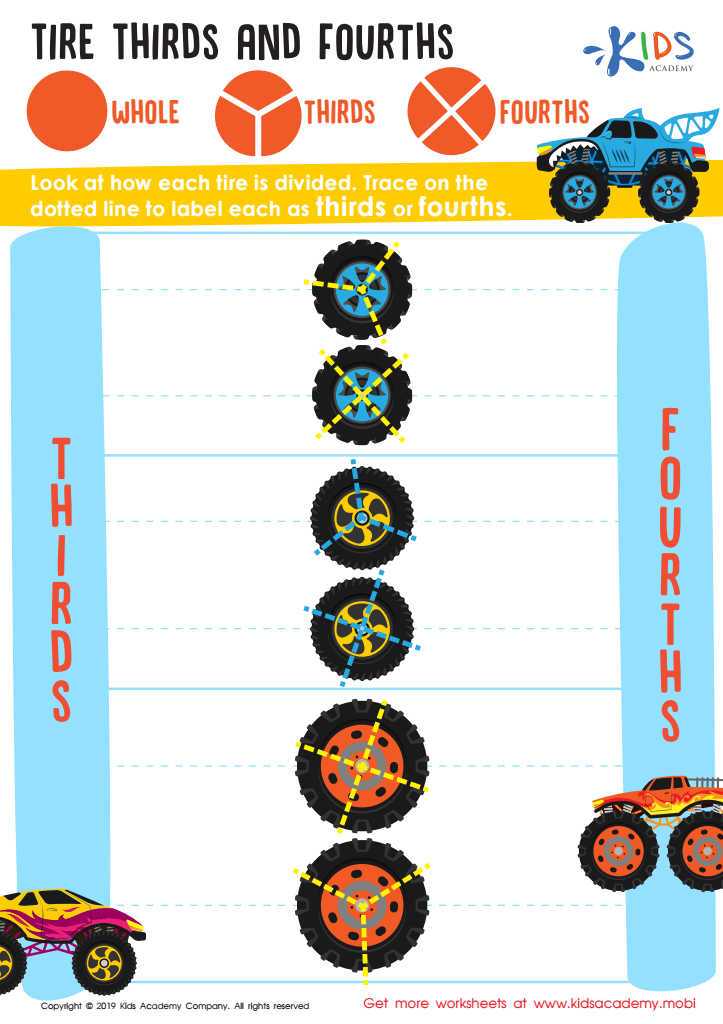

Tire Thirds and Fourths Worksheet
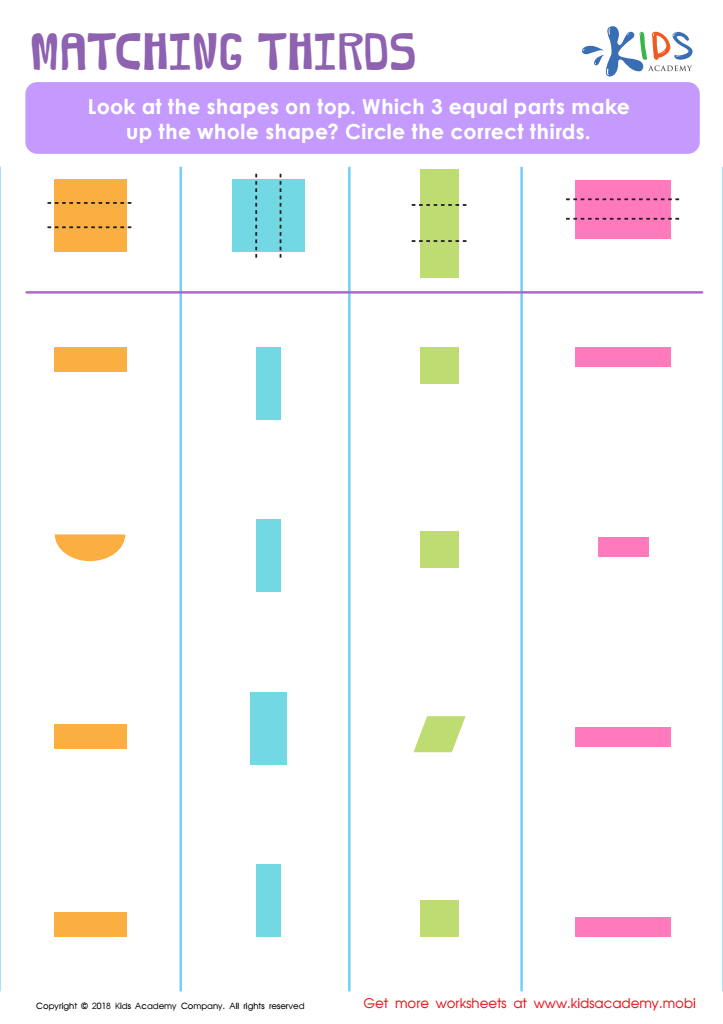

Matching Thirds Worksheet
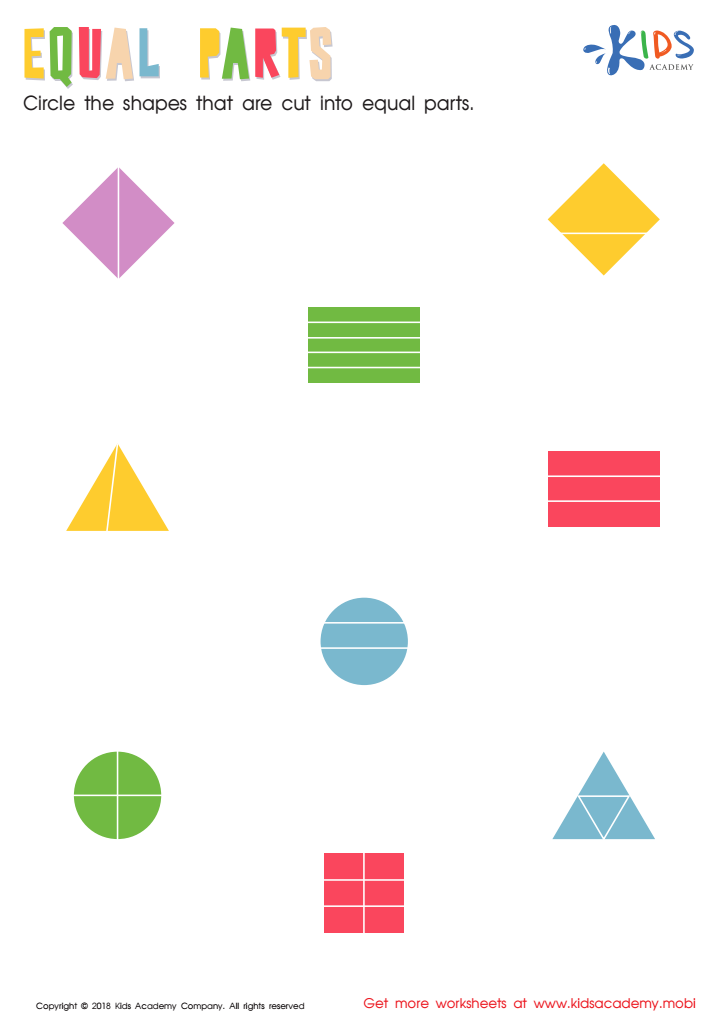

Equal Parts: Shapes Worksheet
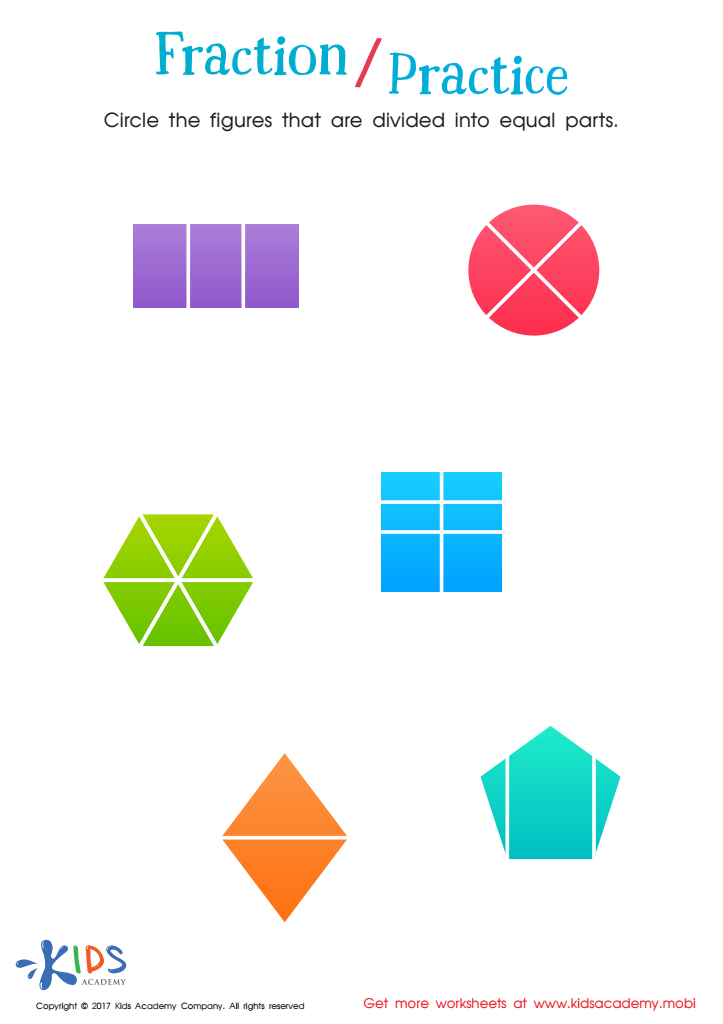

Fractions: Shapes Worksheet
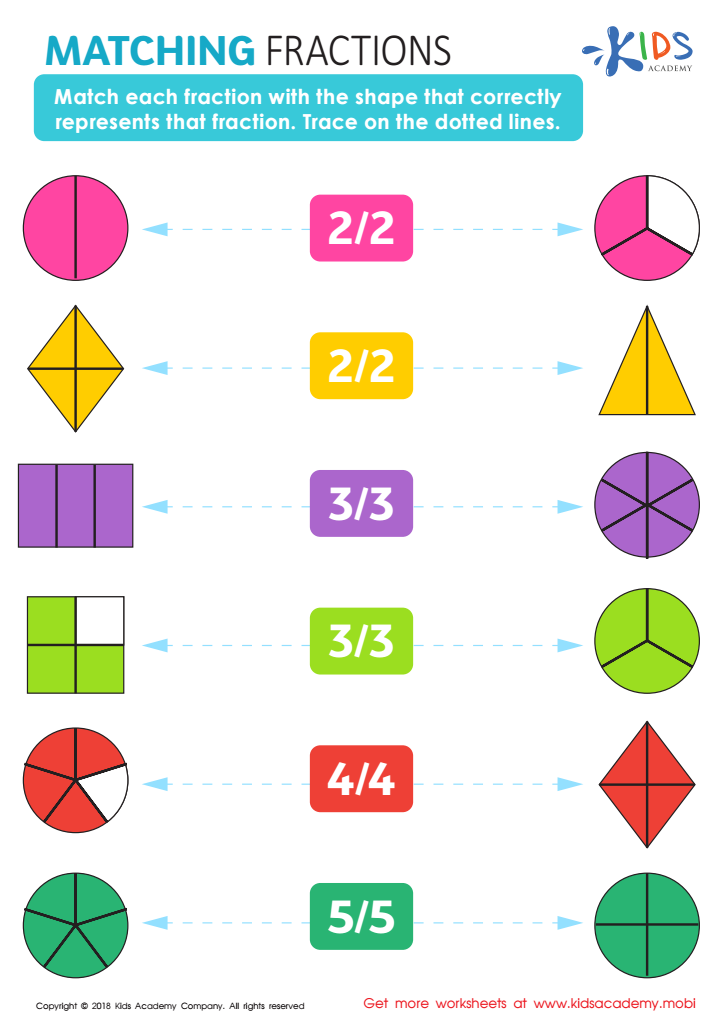

Matching Fractions Worksheet
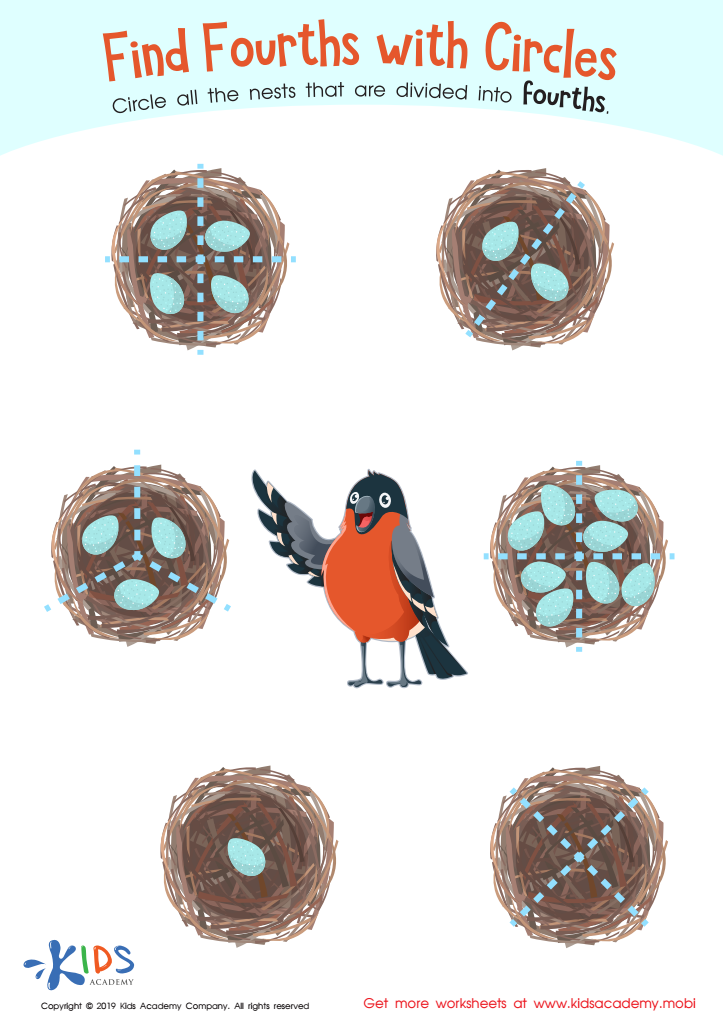

Find Fourths Circles Worksheet
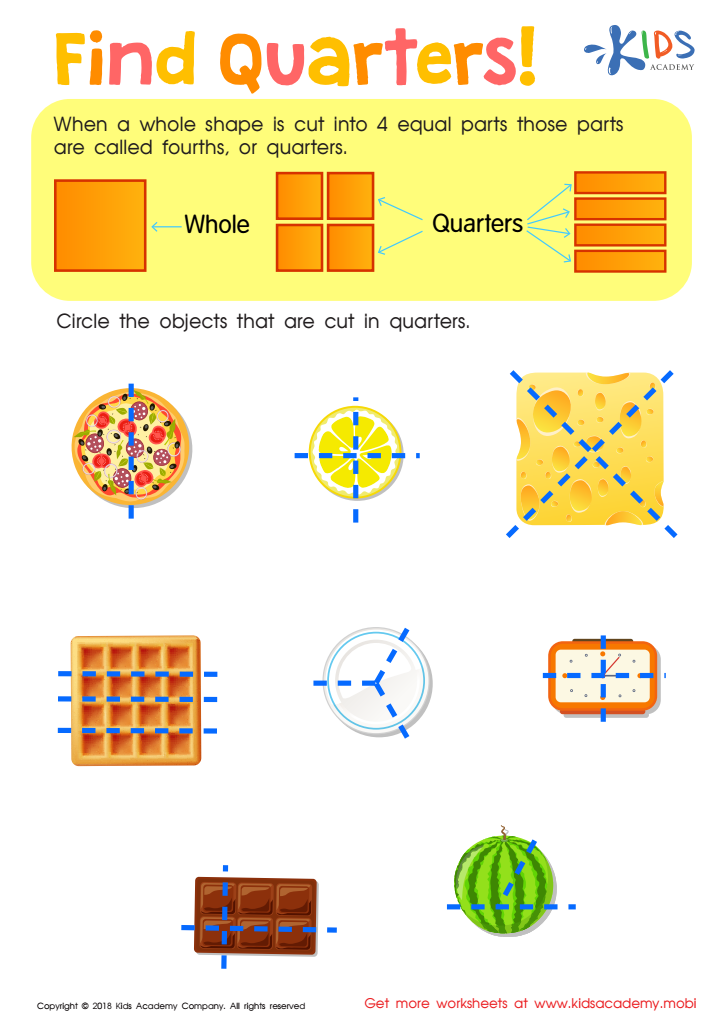

Find Quarters Worksheet
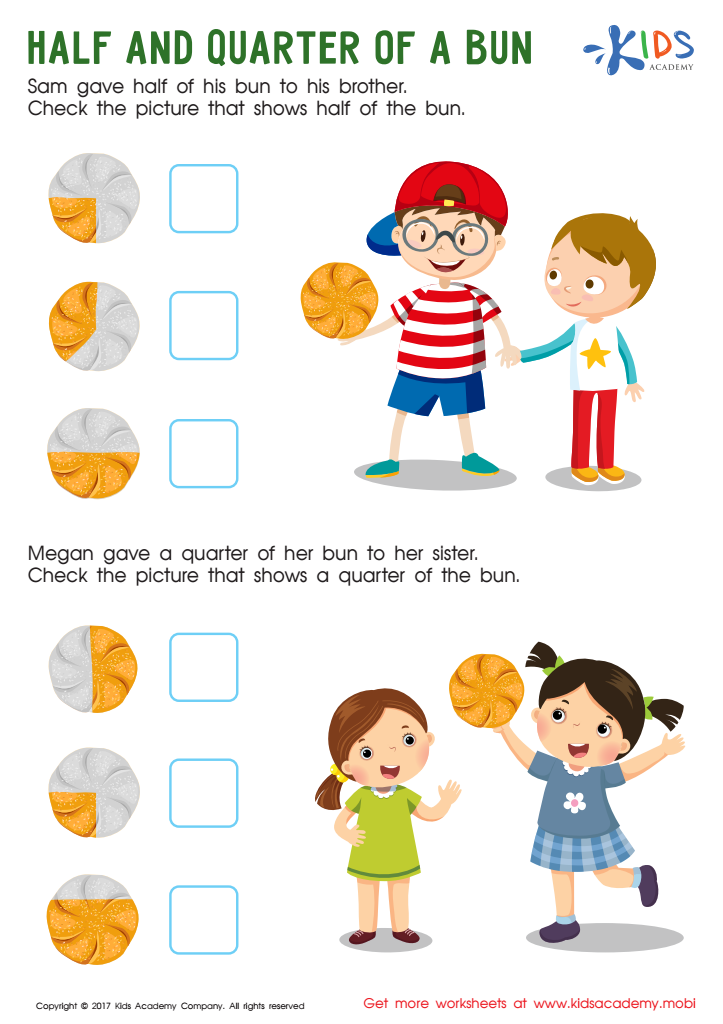

Half and Quarter of a Bun Worksheet
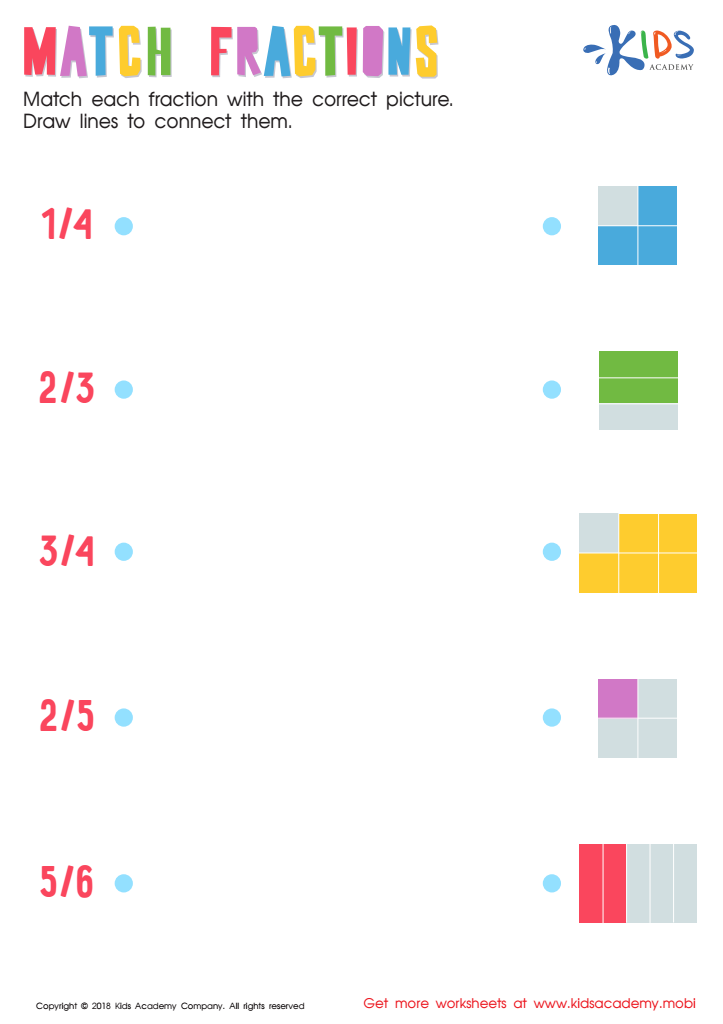

Match Fractions Worksheet
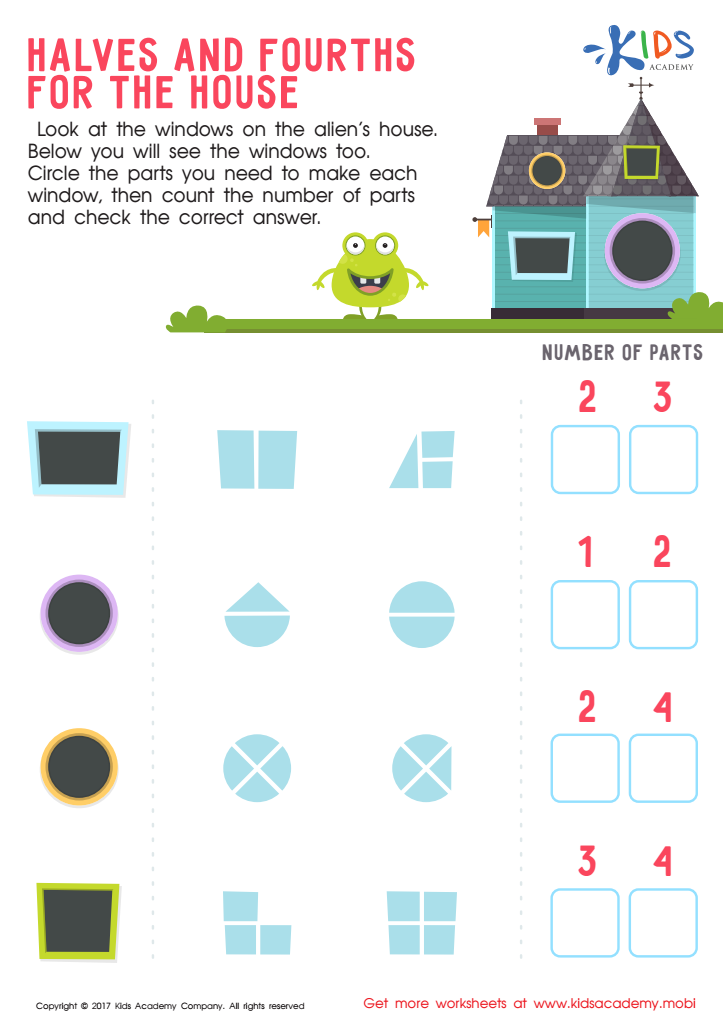

Halves and Fourths for the House Worksheet
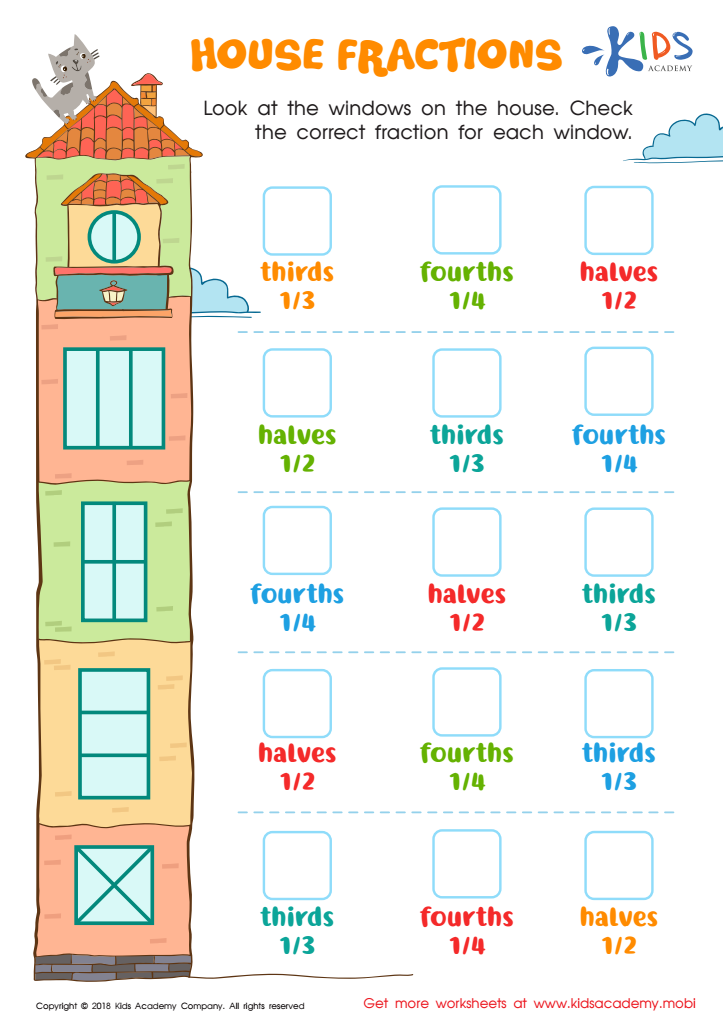

House Fractions Worksheet
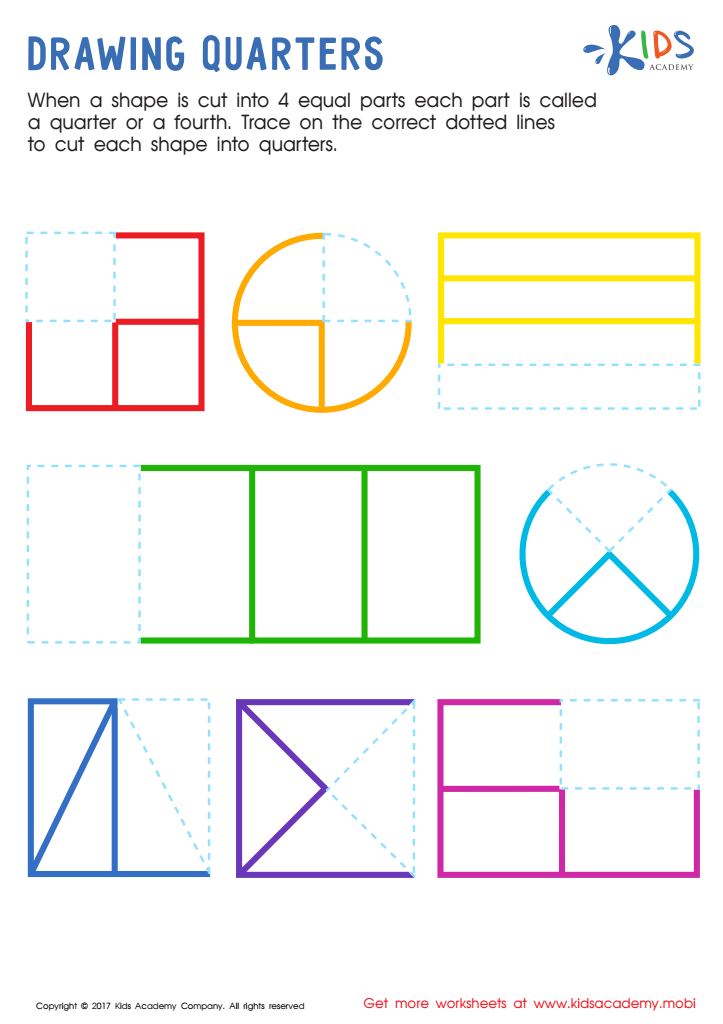

Drawing Quarters Worksheet
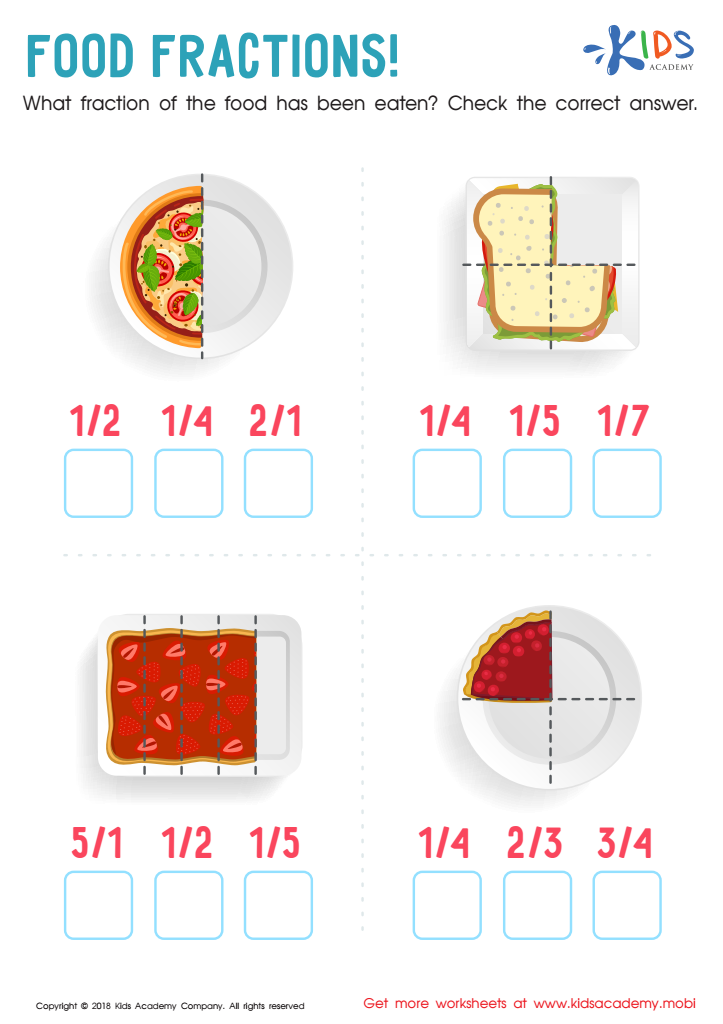

Food Fractions Worksheet
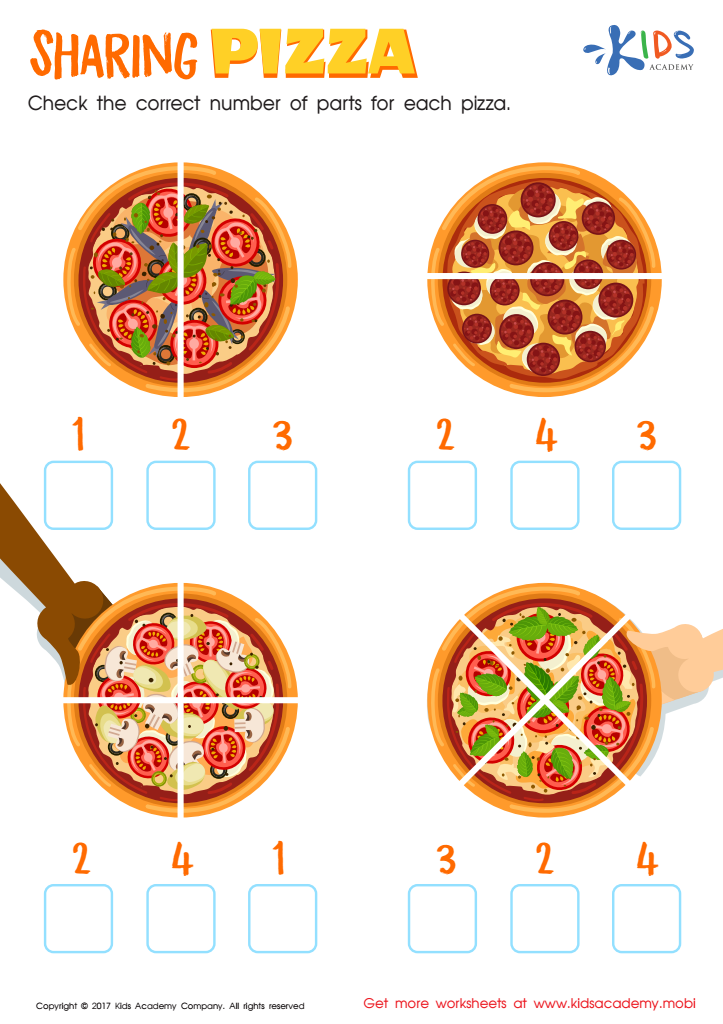

Sharing Pizza Worksheet
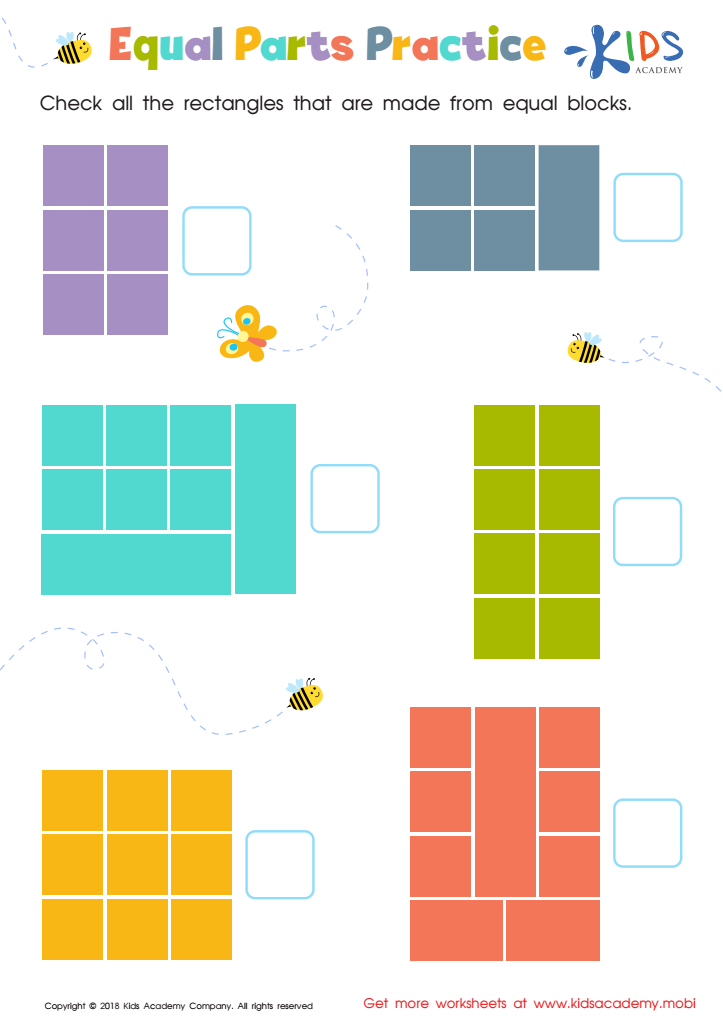

Equal Parts Practice Worksheet
Understanding fractions and geometry at ages 7-9 is crucial for developing a strong foundational math skillset. Fractions teach children the concept of part-whole relationships, which is foundational for later math topics such as decimals, percentages, and algebra. When children grasp fractions, they improve their ability to reason logically and solve problems, essential skills both in school and everyday life.
Geometry, on the other hand, helps children to visualize and understand spatial relationships. Recognizing shapes, understanding their properties, and exploring perimeter, area, and volume, spark curiosity and enhance logical thinking. This also lays ground for advanced topics, including 3D shapes and trigonometry, in higher grades.
Teachers and parents should prioritize these concepts because they extend beyond mathematics. Fractions and geometry tie into various real-life scenarios, like cooking (measuring ingredients), building (understanding dimensions), and even art (symmetric shapes). Cultivating these skills promotes better mathematical reasoning and critical thinking, providing children the tools to solve complex problems effectively. Encouragement and practice in these areas can instill a positive attitude towards math, reducing math anxiety and boosting confidence. Addressing these foundational concepts early ensures children are well-prepared for future academic challenges in math and related disciplines.

 Assign to My Students
Assign to My Students


























